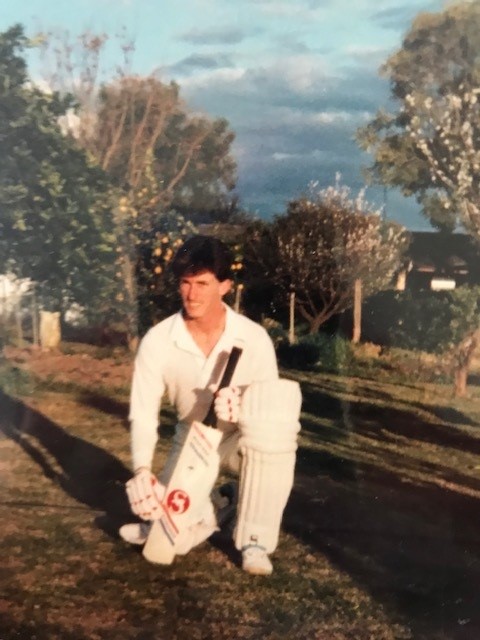
0 Followers
I’m a 16 year old opening batter who played their first season of grade last year. I found it tough to get starts and struggled batting in the afternoon of 2 day matches. Something I struggled with was maintaining focus for my innings and losing concentration when I got comfortable. Could I get some advice on how to maintain focus and get a routine to make sure I’m concentrating
Partner Sponsors
Responses
I always remember some advice on concentration I heard from Bob Simpson. It is impossible to concentrate the whole time while batting. Too draining. So you must learn to concentrate (or focus) at the crucial moments. Teach yourself to switch on as the bowler begins his run up. Or as you look up after taking your stance. At other times do some gardening on the pitch, look around the field, chat to your batting partner in between overs. Fierce concentration 100% of the time can’t work. But in short bursts you conserve your mental reserves and can last at the crease longer. Fielding is the same. Switch on as you start to move in with the bowler, or take your position in close. You can train yourself for batting while in the field. Switching on and off becomes second nature.
Rowan McGregor
Focus on watching the ball or a smaller part of the ball i.e the seam , the writing on the ball or shiny side etc . I feel this makes you focus more on watching the ball closely rather than just watching the general area where the ball is released . It will also keep things simple and not cloud your head with other thoughts .
Set smaller goals i.e getting off the mark then maybe count your runs in lots of 10 . Once your 20 you should tell yourself its now really important to get a big score as you have a start , so getting to 30 is important then 40 and 50 etc with each 10 runs you should tell yourself to concentrate harder as its so important now to get a big score .
Concentrating harder either side of a break is extremely important and also when a new bowler is introduced into the attack or the current bowler is at the end of his spell . These triggers will help you keep focus for longer periods and at important times of the game .
Don't be content with 30 , 50 or even 100 . Some days a 100 isnt good enough and your team will be relying on you to convert to a huge score . Lots of guys get 50 and 100 so try to set yourself apart , kick on and post a really big score .
Also it is very important to relax in between balls and overs .
Steve Mace
Campbell,
As we all know cricket has changed in the last 20 years, with T20 and other short forms of the game, but regardless of how many overs the game is, you still need to be totally focused on every ball, not just the ones you are facing. By continually turning the strike over, you not only keep your score ticking along, but you also get to see what is happening all around the field when you are observing from the non-strikers end.
I always found it entertaining, and a good way to remain focused, to have a running commentary going in my head. Ball by ball, what movement if any, good shots by my fellow batsmen, good pieces of fielding (and poor one). This gave me an all round view of the game situation, where the bowling sides strengths and weaknesses were, how the wicket was playing, was the ground fast or slow etc.
It is a monumental task to bat for all six hours, but you can make that task easier by ensuring that you are both physically and mentally fit enough to get through. What a lot of batsmen (not just young ones) fail to realise, is that you can always make up for a steady start later in the day, as the bowlers get tired, and the ball gets older. You should also follow your routine (if you have one) for each ball. Mark your guard, take a couple of steps away towards square leg, tap down the invisible marks on the pitch, talk to your partner between overs, what ever you need to clear your head from the previous ball, and then get focussed for the next one.
Sure, we are all hearing about Bazball, but not everyone has that ability, so you need to focus on your strengths, learn how to pick up lines and lengths, and have the ability to leave balls when necessary, and when presented with a bad ball, make sure you score from it, and it does not always need to be a six or a four.
As an opener, you have the ability to face all 600 balls of an innings (unlikely), but even if you face 300, and you can score at 50 runs per hundred ball, you will be 150 not out at stumps, I would take that every week, and I am sure the selectors at your club would too.
Hi Campbell
Rowan has explained the importance of switching on and off between balls.
An important component of concentration is physical fitness. People make mental errors when they are physically tired- this applies to work, driving and sport. Physical fitness will help concentration to play long innings or to open the batting after being in the field most of the day.
The best way to get physically fit is to play a football code in winter- soccer and AFL best as most running.
Get an aerobic fitness program. Go to local park and do interval runs after a light jog warm up- varying 400, 200 and 100 metre run throughs (eg 4x 400, 4x200, 6x100 with rest in between). Do about 30-40m minutes. This will also sharpen your batting footwork and speed running between wickets and in the field. Do as much as you can at the start then add as you build up fitness. You will gradually get faster as you get fitter.
Opening the batting in the afternoon after being in the field can be challenging as bowlers know they only have to bowl a short time and bowl faster spells.
While in the field be aware you may be batting soon but do not spend too much mental energy thinking about batting. Once the last wicket falls, get off the field quickly and change to give yourself time to mentally prepare for your batting. Focus on being not out at stumps ie you know the time you have to bat so bat over by over till stumps.”











